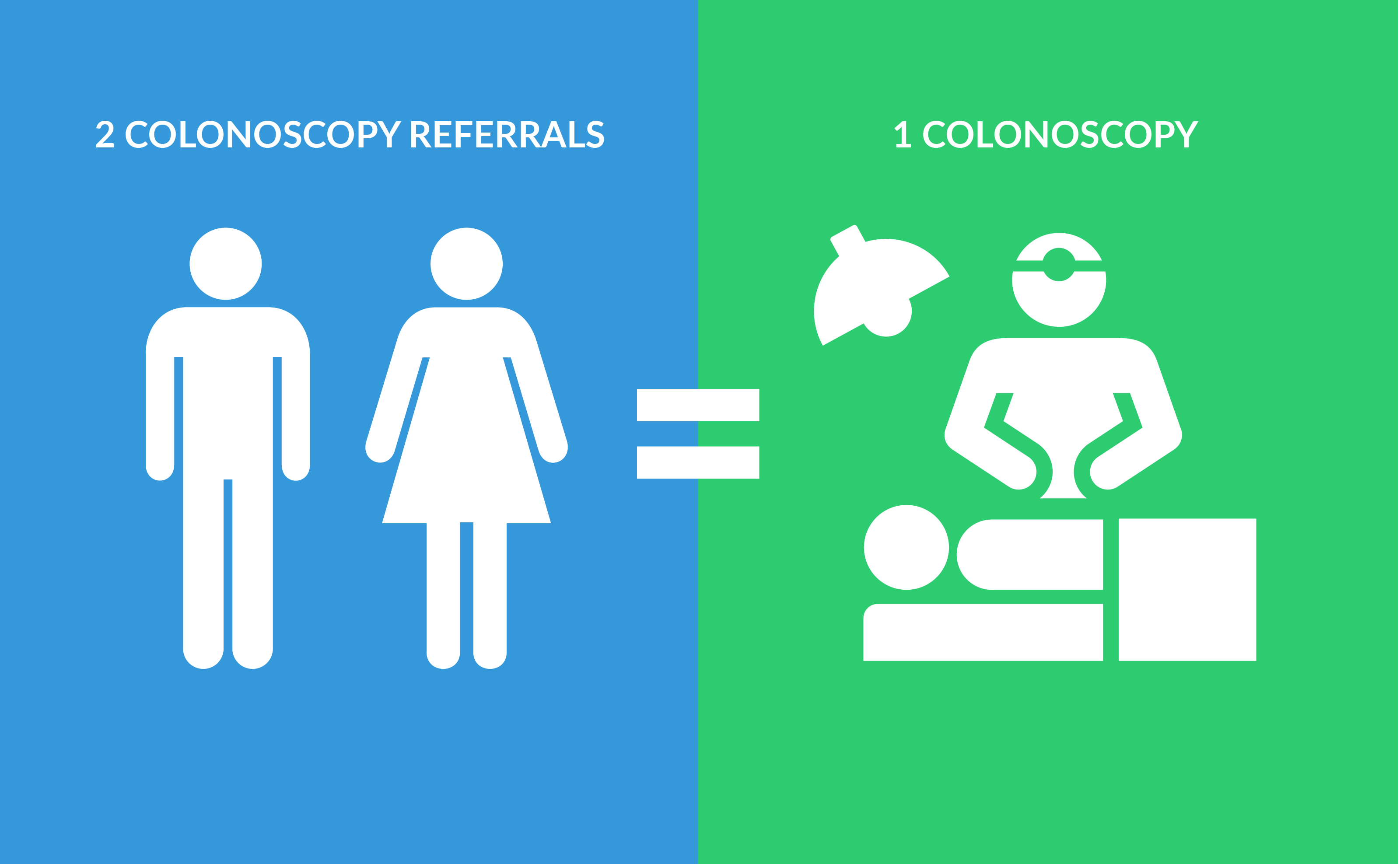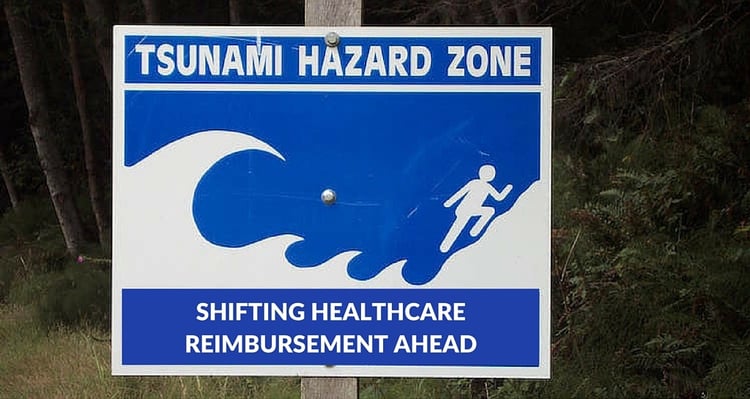
DSM is antiquated, backwards, and “meaningless work for meaningful use” - Physician testimony | ONC HIT Policy Committee
“ONC’s new ‘interoperability roadmap’ downplays the potential of Direct messaging” as a solution for interoperability - Medical Economics
Contrary to what some electronic health record (EHR) proponents believe, DSM (Direct secure messaging) by itself is an unpopular and ineffective solution when it comes to true interoperability, care coordination and referral management. It has almost no practical benefit for referral management beyond what primary care practices use it for right now: getting credit for Meaningful Use stage 2.
CONTINUE READING
Topics:
Referral Network,
Referral Management,
Direct secure messaging,
DSM

As the CDC sounds the alarm to increase awareness for colorectal cancer screening, primary care practices find that their EHRs can’t support the task of getting patients to complete colonoscopy referrals. In addition to the CDC, there is a growing focus by medical societies, advocacy organizations and media personalities like Katie Couric to ensure that adults over 50 get referred for colonoscopies to detect and prevent colorectal cancer. Awareness initiatives are critical because half of all patients referred for colonoscopies fail to complete the procedure.1
CONTINUE READING
Topics:
Coordinated Care,
Referral Management,
Closed-Loop Referrals,
Referral Adherence

The leading cause of blindness worldwide is diabetes. However, referral management makes a significant impact on saving the eyesight of diabetic patients. Most people who have diabetes for more than 20 years develop diabetic retinopathy1, a condition where elevated blood sugar damages the blood vessels inside the retina. Over 7.7 million American adults have diabetic retinopathy today and that number is expected to double by 2050. The condition affects almost 30% of the US diabetic population over the age of 402 and causes up to 24,000 new cases of blindness in the US each year.
CONTINUE READING
Topics:
Coordinated Care,
Healthcare Analytics,
Referral Management,
Closed-Loop Referral Management,
Patient Adherence,
Diabetic Eye Exam

8 out of 100 missed or delayed cancer diagnoses are a result of a failure of a requested referral to occur.1 Furthermore, a recent study found that the risk for colorectal cancer almost doubles when a patient with a positive stool test waits over a year to have a colonoscopy.2 Colorectal cancer is the second leading cause of cancer-related deaths in the United States3 and up to 90% of colorectal cancer deaths are preventable with early detection.4
A significant amount of gastroenterologist referrals are for colonoscopies.5 But for every two patients who are referred by their physician to get colonoscopies, only one of them will end up getting the colonoscopy.6
CONTINUE READING
Topics:
Care Coordination,
Referral Management,
Closed-Loop Referrals,
Patient Adherence

Updated February 2017
In almost every speech given in 2016, Andy Slavitt, the former Acting Administrator for the Centers for Medicare and Medicaid Services (CMS), has emphasised the priority of closing referral loops to strengthen patient care coordination.
Independent practices have less than a year to prepare for newly developed value-based care reimbursement guidelines. The option to test the quality payment program under MIPS and MACRA will no longer be in play beginning in 2018. In view of the challenging financial penalties of value-based payment, many practice leaders are struggling to find an efficient way to close referral loops.
CONTINUE READING
Topics:
Referral Management,
Closed-Loop Referral Management,
Interoperability,
Closed-Loop Referrals

It would be easier to coordinate team-based medical care on facebook rather than with EHR systems.
- John Halamka, CIO | Beth Israel Deaconess Medical Center and co-chair of the federal HIT Standards Committee, at the HIMSS conference in March 20161
EHRs aren’t enough
A common misconception is that an electronic health record (EHR) can close referral loops and provide high-performance referral management for primary care practices. However, not long after EHRs were implemented, users quickly realized that EHRs alone are not able to establish a pipeline that allows data to flow between PCPs and specialists from different organizations.2
CONTINUE READING
Topics:
Care Coordination,
Healthcare Analytics,
Referral Management,
Closed-Loop Referral Management,
Interoperability

Accountability in health care often means that primary care practices are liable for the cost and quality of a patient’s care across the continuum of care. In the old, diminishing fee-for-service reimbursement system, practices were only reimbursed based on actions within their own office.
Now, in new reimbursement models like ACOs, PCMHs, risk-based contracting, and alternative payment models, shared accountability is king.
“The idea that you are accountable for what happens after people leave your office is no longer just a philosophical discussion. It's dollars and cents.”1
CONTINUE READING
Topics:
Referral Management,
Closed-Loop Referral Management,
Provider Accountability,
Value-Based Care

The New England Journal of Medicine describes the traditional patient referral process as a perilous journey [1]. Right off the bat, only half of patients show up to their referred specialty physician appointments [2].
In fact, the referral process is so fragmented that even when patients do show up to their specialist appointments, only 32% of specialists will receive clinical information from the PCP prior to seeing the referred patient. [3]
CONTINUE READING
Topics:
Coordinated Care,
Healthcare Analytics,
Referral Management,
Interoperability,
Closed-Loop Referrals

A tsunami of change is shifting the healthcare reimbursement system towards value-based care.
As a result of legislation passed in 2015, called MACRA, Medicare is supercharging its emphasis on value-based payments and the first performance year will be 2017. As a result, the way medical practices manage referrals will impact their revenue.
“Providers that hope to succeed under the new payment methodology need to begin making changes now.“
- Dave Wofford | Healthcare Financial Management Association
CONTINUE READING
Topics:
Coordinated Care,
Referral Network,
Referral Management

Care coordination is complex. Interoperability is far from reach. Patient information is difficult to track, especially when primary care physicians and specialists utilize different EHR systems. You need to stay competitive and make faster, smarter decisions. You want to fix these challenges, but you can’t because you don’t have the resources.
EHRs and practice management systems have referral order capability but are transactional and not built for true closed loop referral management. There is a difference between tracking and managing your patient referrals. So how are you going to manage health populations and improve patient care?
CONTINUE READING
Topics:
Coordinated Care,
Healthcare Analytics,
Referral Network










